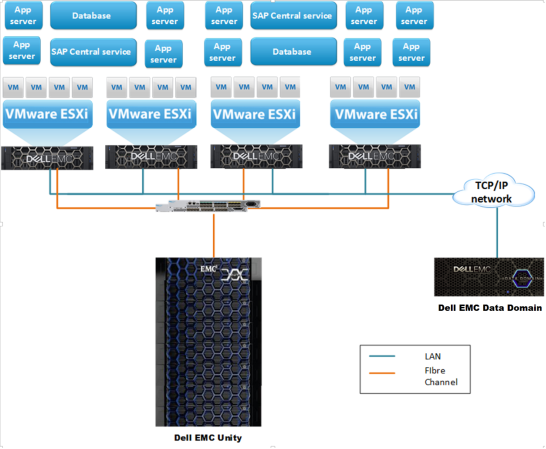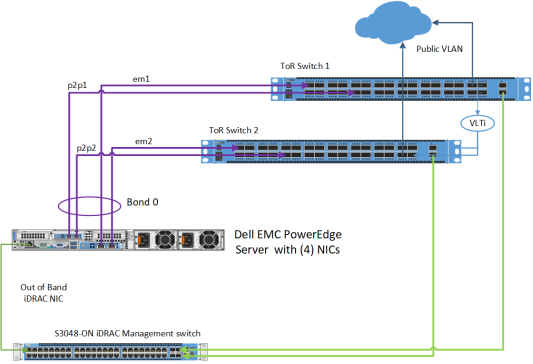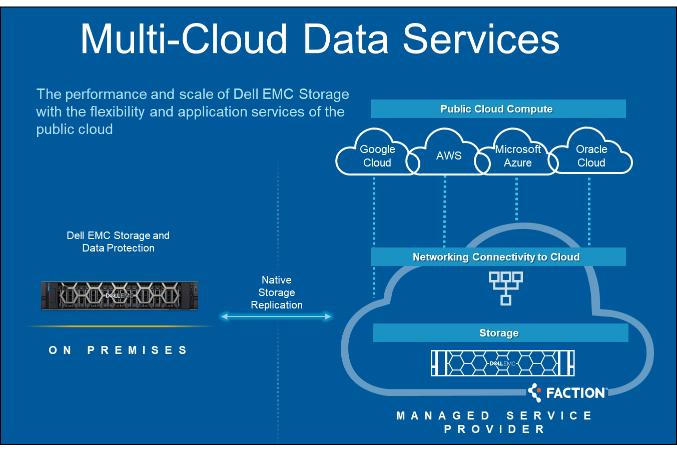The requirements for data centers have grown exponentially, and keeping pace with the demand has been a challenge until now. Several companies are offering competent solutions, but Intel stands out in the market for a few reasons. They can help you sore and mage and optimize the infrastructure. These are particularly helpful for organizations involved with storage technologies, virtualization, or artificial intelligence.
The processors provided by intel are more than powerful and capable of meeting the demands of most intel applications. So, from HPC to in-memory analytics or cloud or AI, these systems are great to rely on for today’s digital initiatives. These systems are rich with features and provide a high-functioning platform that is very versatile.
The data centers are powered by Intel® Xeon® Scalable Processors and FPGA Acceleration. The processor is known for making the data centers extremely scalable and agile. The credit goes to the processor for its innovative abilities to converge across storage, memory, computing, and security. The FPGA acceleration program by intel is very helpful in moving, processing, and storing data, and it does so efficiently and quickly. The patterns of the workloads and traffic often tend to shift. This acceleration program helps optimize the hardware and anticipate the shifts at the critical points, making it a dependable system.
The workloads are ever-increasing and getting more complex with every passing second, and Intel data solutions provide server solutions to tackle these critical and complex workloads. With years of expertise in the fields, Intel provides three types of solutions to cater to all your data center demands.
-
Intel® Data Center Systems (Intel® DCS) for HCI, certified for Microsoft Azure Stack HCI.

These system servers are validated and optimized for deploying a hybrid cloud and can be the fastest way towards it. Microsoft itself has played a fair part in further optimizing Microsoft Azure performance. Processors from Xeon Scalable series are a great help in making the windows server work for you. These are perfect when working on , S2D, SDN, and WAC. These data systems bring home several advantages. Intel’s data center system, optimized for HCI, helps you save money and have a wonderful time. It helps your free up resources to empower you to focus on differentiation competitively and by adding value.
The systems are specifically validated and designed for solutions regarding SDS. Intel also extends its reference architecture which is optimized for the workload. This is a strong boost when it comes to the deployment of infrastructure. Intel systems can be heavily relied upon for validation, certification, and support. The system comes under a standard warranty of 3 years; however, to boost customer confidence, Intel extends the warranty for two more years, making it a total of 5 years.
-
Intel® Data Center Systems (Intel® DCS) for HCI, certified for VMware vSAN.

These systems are tailored to provide validated support for HCI and storage deployments that both demand extreme performance. These server systems enable you to build solutions that are cost-effective and innovative. These systems are available in various flexible configurations. Simplicity is one of the advantages while using these servers. Since VMware vSAN is embedded in the vSpere hypervisor, managing it and provisioning it becomes very easy. These systems allow administrators to proportion the storage according to demand and requirement. This system also assures to help in the reduction of upfront costs. We designed this infrastructure to be highly scalable and to accommodate rapid deployment changes. Thus making it more efficient and more cheap in comparison to others. These systems are easy to manage and set up at no sacrifice of performance. Moreover, these systems excel in inventory management and asset provisioning.
-
Intel® Data Center Systems (Intel® DCS) for HCI, certified for Nutanix Enterprise Platform.
These systems are available on an order basis. This allows you to obtain the configuration needed for your tasks. To optimize the system’s performance best when an order comes with all the latest components, be it chassis, power supply, or processors. TIntel and Nutani have constructed these systems to deliver seamless performance. The system has a special thermal design that enables the use of CPUs in a very powerful manner. You can utilize this boost in performance for multiple virtual servers. These also help enhance the quality of service for the needs of the customer application. This system comes with the one-click facility to help you plan, provision for, get an insight into, and upgrade firmware.
Intel has collaborated with Nutani to establish a dedicated physical lab. This establishment aims to enhance the seamlessness in intel architecture and stack of Nutanix software. They aspire to better equip the customer with innovative advancements in technology and computing. It will focus on innovation and the adoption of technology.
FAQs
1. What are Intel Data Center Systems?
Intel Data Center Systems refer to integrated solutions comprising servers, storage, networking, and management software designed for enterprise data center environments. These systems are optimized for performance, reliability, and scalability to meet the demanding requirements of modern data center workloads.
2. What components are typically included in Intel Data Center Systems?
Intel Data Center Systems commonly consist of servers powered by Intel Xeon processors, storage solutions utilizing Intel SSDs or other storage technologies, networking infrastructure featuring Intel Ethernet controllers, and management software for orchestration, monitoring, and automation.
3. What are the advantages of using Intel Data Center Systems?
Some advantages include high performance and efficiency, seamless integration of components optimized for compatibility and reliability, simplified deployment and management, scalability to accommodate growing workloads, and access to Intel’s ecosystem of software and hardware innovations.
4. What types of workloads are suitable for Intel Data Center Systems?
Intel Data Center Systems are suitable for a wide range of workloads, including cloud computing, virtualization, big data analytics, artificial intelligence, machine learning, content delivery networks (CDNs), software-defined infrastructure, and enterprise applications like databases and ERP systems.
5. How are Intel Data Center Systems designed to improve energy efficiency?
Intel Data Center Systems incorporate energy-efficient components such as Intel Xeon processors featuring advanced power management technologies, Intel SSDs with low power consumption, and Intel Ethernet controllers optimized for energy efficiency. Additionally, management software enables power management and workload consolidation to further reduce energy consumption.
6. Can Intel Data Center Systems be customized to meet specific business requirements?
Yes, Intel Data Center Systems can be customized to address the unique needs of different industries and applications. Customers can choose from a variety of server configurations, storage options, networking solutions, and management software to build a tailored data center infrastructure that aligns with their specific requirements and objectives.
7. What support and services are available for Intel Data Center Systems?
Intel offers a range of support and services for Intel Data Center Systems, including technical assistance, warranty coverage, system integration support, training programs, and access to resources such as documentation, software updates, and optimization tools. Additionally, Intel’s global network of partners and solution providers can provide additional expertise and assistance as needed.





